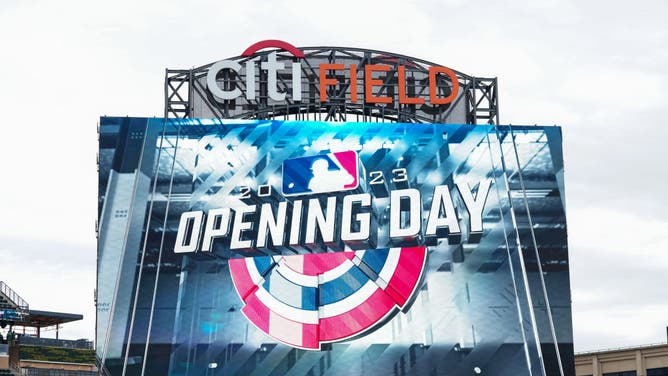Football Overtakes Baseball As 'America's Pastime,' But How Did It Happen?
It may come as a surprise to most, but at one point Major League Baseball, not the NFL, was viewed as "America's Pastime."
For decades, baseball was America's most popular sport, with unquestioned dominance in both viewership and name recognition among its athletes. But by the late 1990's, the shift away towards other sports accelerated. And by the mid-2000's, that shift had fully completed, with the NFL the chief beneficiary.
Now a new survey is out from Pew Research, which asked 12,000 adults what they would describe as being "America's sport," even if they don't watch it or follow it regularly. And the results indicate just how dominant the NFL and college football have become across the domestic sporting landscape.
53 percent of respondents said they viewed football as the new American pastime, with baseball second at 27 percent. Basketball was a distant third with just 8 percent, with auto racing and soccer (?) at 3 percent, "something else" at 2 percent, and hockey at 1 percent. How Pew Research found 3 percent to call soccer the American pastime might be worth it's own survey and investigation.
Unsurprisingly, football dominated across different ages, genders, races and ethnicities. But perhaps the more interesting question to ask isn't which sport dominates the U.S., it's how did it happen?

Citi Field, home of the New York Mets, on Opening Day of the 2023 Major League Baseball Season. (Photo by Mary DeCicco/MLB Photos via Getty Images)
Football Reaps Huge Benefits From Modern American Trends
For many, the simple answer to that question is "baseball is boring." And while it's everyone's right to have personal preferences with regards to entertainment, that doesn't exactly hold up to scrutiny.
For example, while there are different estimates depending on the source, one Wall Street Journal analysis found that in 2010, NFL games contained just 11 minutes of action throughout their three plus hour run times. Another WSJ analysis said that, by contrast, baseball games had roughly 18 minutes of action. And that's before MLB developed new rules for 2023 to speed up games and encourage stolen bases and other "action" plays.
So if baseball games actually have more going on than football games, why do so many fans find baseball boring? The answer, at least in one possible explanation, is gambling and fantasy sports.
The NFL's popularity exploded in conjunction with the rise of fantasy football. Fans were given a reason to watch virtually every game, regardless of their preferred team. And with fewer games, consolidated on fewer dates, it's much easier to follow and manage than the marathon baseball season. Similarly, gambling opportunities have helped accelerate television ratings, as fans track games to see how much they'll lose that day.
Baseball has little fantasy or gambling culture to drive popularity and viewership, with too many games happening every single day to follow all of them. But that's not the only explanation either.
Stars And Exposure Matter
The rise of the quarterback position in the NFL has also played a major role; fans like stars, and no position in sports breeds stars like quarterback. They're the most visible, most important players on the field, in a way that baseball players can't be. Starters only pitch once every five days, and even the best hitters fail 70 percent of the time.
Quarterbacks though, are instant celebrities in a way that transcends sports. Viewers tune in to see Patrick Mahomes or Tom Brady, as just a few examples. And because having an elite quarterback is the biggest advantage in the NFL, those stars often play on the sport's biggest stage, the Super Bowl. Meanwhile Mike Trout and Shohei Ohtani, arguably MLB's best players over the past decade, have played in just three combined postseason games, and none in the World Series. Last year's Diamondbacks-Rangers matchup featured just a handful of names recognized by non-die hard baseball fans.
The NFL has won the popularity war running away, and while much has to do with the inherent excitement and energy of football games, the other factors like declining attention spans, star power, fantasy sports and gambling, were out of its control. Unfortunately for baseball, none of those trends look likely to end anytime soon either.